The Treaty of European Union (TEU) affirms gender equality and non-discrimination as fundamental principles (Article 2). Combating gender-based violence is one of the five priority areas of the EU’s Strategic Engagement for Gender Equality 2016-2019 and will continue to be so in the next phase 2020-2023. Ursula van der Leyen, the President of the European Commission, has committed to promoting gender equality and women’s rights.
Violence against women is a violation of human rights and a form of gender-based discrimination, which is rooted in social inequalities between men and women. Although similarities exist in national policies to combat violence against women, the Member States have adopted different approaches to address the problem.
In its interim resolution of 12 September 2017, the EU Parliament welcomed the signing of the Istanbul Convention by the EU and urged the Council to speed up EU accession, but also raised concerns about the scope of it. The EU Parliament also asked the Commission to be proactive in dispelling misconceptions about the Convention that has prevented a number of Member States from ratifying it, an issue raised again at the debate held in June 2018, one year after the signing by the EU.
We have witnessed trends pointing to a growing backlash against women’s rights and gender equality. Some organized networks have campaigned in particular against women’s sexual and reproductive rights, while also promoting discrimination and violence against LGBTI people with practical consequences in some Member States. Preventing and combating violence against women remains a burning issue. The ratification and implementation of the Istanbul Convention remains incomplete or at risk of backsliding. The nature, intensity and effects of the backlash against women’s rights have varied among countries and regions, in some cases remaining at the level of rhetoric that appropriates the language of human rights while in others it has been concretised into measures and initiatives. Stopping the backlash needs strong political will and united action from the EU and the member states.
There is strong scientific evidence on the devastating and costly consequences which being exposed to violence has on women and children. The ongoing backlash is making the transgenerational effects of violence even worse by restricting women’s sexual and reproductive rights in several countries.
The Federation of Mother and child homes and Shelters, together with Women Against Violence Europe, demand strong commitment and concrete actions from EU member states, the Council of the European Union, the European Parliament and European Commission:
- Commitment to swift accession of EU to the Istanbul Convention and ratification of it in all Member States as well as its full implementation.
- Provision of adequate resources to prevent violence and women’s specialist services, as well as allocation of sufficient and earmarked funding for gender equality and combating gender-based violence in the next Multiannual Financial Framework (MFF) 2021-2027.
- Close monitoring of those EU Member States where the values underpinning the Istanbul Convention are being severely threatened – and recognition that the backlash-agenda concerns all EU member states.
- Recognition that exposing children to violence in their homes or against their family member increases risk of harm among children and should constitute as aggravating circumstances in criminal law as well as guaranteed resources for programs and support for these children.
- Ensuring that violence against women is considered a relevant factor by national authorities in determining custody and visitation rights.
27.11.2019 Helsinki, Finland
during “Stop the backlash – Stop domestic violence” -conference
Riitta Särkelä
Secretary General
The Federation of Mother and child homes and Shelters
Pille Tsopp-Pagan
President
Women Against Violence Europe, WAVE
